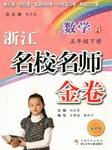题目内容
A characteristic of American culture that has become almost a tradition is to respect the self-made man — the man who has risen to the top through his own efforts, usually beginning by working with his hands. While the leader in business or industry or the college professor occupies a higher social position and commands greater respect in the community than the common laborer or even the skilled factory worker, he may take pains to point out that his father started life in America as a farmer or laborer of some sort.
This attitude toward manual(体力的) labor is now still seen in many aspects of American life. One is invited to dinner at a home that is not only comfortably but even luxuriously (豪华地) furnished and in which there is every evidence of the fact that the family has been able to afford foreign travel, expensive hobbies, and college education for the children; yet the hostess probably will cook the dinner herself, will serve it herself and will wash dishes afterward, furthermore the dinner will not consist merely of something quickly and easily assembled from contents of various cans and a cake or a pie bought at the nearby bakery. On the contrary, the hostess usually takes pride in careful preparation of special dishes. A professional man may talk about washing the car, digging in his flowerbeds, painting the house. His wife may even help with these things, just as he often helps her with the dishwashing. The son who is away at college may wait on table and wash dishes for his living, or during the summer he may work with a construction gang on a highway in order to pay for his education.
From paragraph 1, we can know that in America _________.
A. people tend to have a high opinion of the self-made man
B. people can always rise to the top through their won efforts
C. college professors win great respect from common workers
C. people feel painful to mention their fathers as labors.
According to the passage, the hostess cooks dinner herself mainly because _________.
A. servants in American are hard to get
B. she takes pride in what she can do herself
C. she can hardly afford servants
D. It is easy to prepare a meal with canned food
The expression “ wait on table” in the second paragraph means “_________”.
A. work in a furniture shop B. keep accounts for a bar
C. wait to lay the table D. serve customers in a restaurant
Which of the following may serve as the best title of the passage?
A. A Respectable Self-made Family B. American Attitude toward Manual Labor
C. Characteristics of American Culture D. The Development of Manual Labor
【小题1】A
【小题2】B
【小题3】D
【小题4】B
解析:
本文介绍了崇尚自我奋斗,尊重体力劳动的美国文化。
【小题1】细节题。 根据 A characteristic of American culture that has become almost a tradition is to respect the self-made made 我们可以了解到,“崇尚自我奋斗”是美国文化的特点。
【小题2】推断题。根据This attitude toward manual(体力的) labor is now still seen in many aspects of American life.(在美国生活的方方面面,尊重体力劳动态度的现象仍然随处可见),可以推断女主人亲自下厨,是因为她以能做这样的体力活而自豪。
【小题3】词义猜测题。wait on table 意为“服务顾客”,注意其后的 washing dishes 也有一定的暗示意义,故答案为 D。
【小题4】主旨题。纵观全文,文章主要讲了美国崇尚自我奋斗,尊重体力劳动的文化习惯。故答案为B。

 浙江名校名师金卷系列答案
浙江名校名师金卷系列答案
